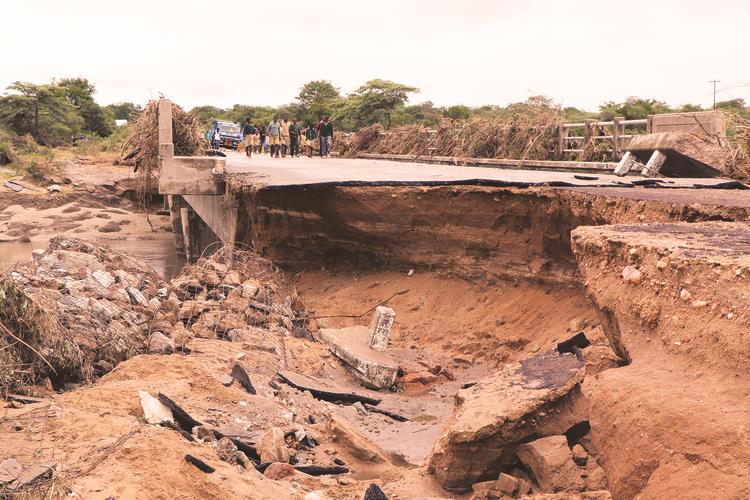Editorial comment : Stakeholder disaster preparedness critical

Reports that incessant rains pounding the country mainly the eastern, southern and western parts might continue until the end of March, calls for all stakeholders in strategic disaster management to activate their systems so that people are not killed or maimed.
People in these areas have already suffered enough and safety nets should now be on the ground so that the impact is ameliorated in the event that disaster strikes again.
Masvingo and some parts of Matabeleland provinces are receiving record breaking rainfall of up to 200mm, resulting in heavy flooding and destruction of bridges, cutting many communities from major trading centres and supplies.
These heavy rains and flooding should, however, help the country plan for future disaster mitigation and recovery programmes.
The country also eagerly wants to see a swift recovery programme with communities affected resuming normal life and conducting their business and not the experience of Cyclone Eline where some bridges in Chiredzi are yet to be repaired.
It is our hope that the CPU and some benevolent organisations should quickly mobilise to repair infrastructure immediately as tobacco farmers prepare to deliver their crop to auction floors.
Tobacco farming, one of the country’s foreign currency earners and Command Agriculture, should be supported structurally as they promise to ignite economic turnaround this year.
After farmers nationwide responded overwhelmingly to the food initiative programme, it is everyone’s desire that all damaged infrastructure is repaired promptly so that farmers do not suffer post-harvest losses.
The country is expecting over two million tonnes of maize following an oversubscribed Command Agriculture that was funded by money mobilised locally as Zimbabweans continue to have confidence in Government initiated programmes.
Zimbabwe’s economy is agro-based and it’s crucial that all communication and transportation routes are kept open since a slight delay will see fresh products perishing, leading to serious loses.
When such natural disasters strike, information management and dissemination becomes critical to avoid unnecessary loss of life and property.
However, the public should be strongly warned not to abuse the social media by communicating unverified information that might end up causing harm to innocent people after taking action based on wrong information. The rains are expected in most parts of the country and when disaster strikes, communities in both rural and urban areas are encouraged to use locally available resources and indigenous knowledge systems to assist affected members.
At times CPU and donor relief is delayed due to logistical challenges leaving the areas accessible by helicopters only.
Masvingo provincial administrator Mr Fungai Mbetsa recently painted a grim picture when he said: “We have a situation where, right now, some people from Chiredzi South cannot access northern parts of the district because of a low-lying bridge (Chilonga Bridge along Runde River) that is easily submerged in water after heavy rains.”
These heavy rains besides bringing relief to farmers, have also brought another challenge — accessing clean water and food and ensuring health and safety.
In the past, we have seen the Zimbabwe Defence Forces responding to such challenges, in some cases using helicopters to move marooned people and it is our hope that they will continue rising to the occasion.









Comments